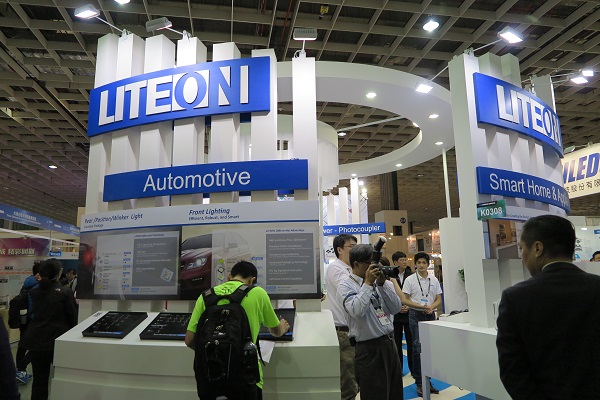 |
|
(Image: LEDinside) |
Seeing a future with IoT Technology gradually maturing, Lite-On Technology is making a big push into automotive IoT and smart traffic systems and will showcase its products in January at CES 2018. It has comprehensive 802.11P solutions and is developing solutions that meet the LTE-Vehicular mobile standard.
The company plans to exhibit automotive IoT networks and windshield-HUDs. In particular, the windshield-HUDs are capable of displaying an image two meters ahead that ensures road safety and does not affect drivers’ vision.
Lite-On sees great potential in intelligent automotive technology and builds R&D centers and production sites worldwide for large-scale development and production of automotive IoT, components for ADAS systems, and energy-efficient LED autolamps. Based on previous collaborations with Tier 1 multinational automotive companies, Lite-On will offer automotive network devices and ADAS systems to the market of factory-installed equipment.
Lite-On anticipates a growth of its business of vehicle-mounted telematics box (T-Box) in 2018. The application provides infotainment content both entertaining users and improving their safety and has earned a favorable reception, especially from top tier automakers, in the global factory-installed equipment market.
Apart from the US, Lite-On also eyes China’s vehicle market, planning an entry to it through its collaboration with Chinese technology firms on the development of back-end platforms for automotive IoT.
The Taiwan-based company continues to estimate that its HUD business segment would grow by over 10% on an annual basis for the next couple of years. It has started shipping products after verification and offering wireless charging devices to Japanese automakers following its first entry to the Japanese automotive supply chain in 2013. It intends to upgrade those devices to function as car keys by adding phone recognition capabilities.
As for the LED autolamp segment, Lite-On predicts it would grab a share of 15% in the global market in 2018, and a total 10% share for its engine controller segment.











